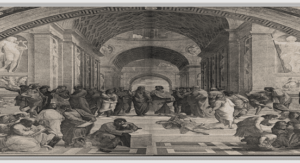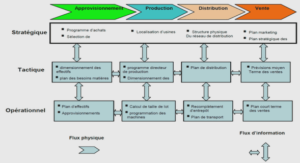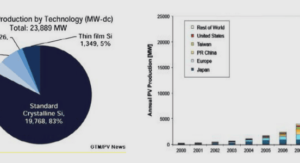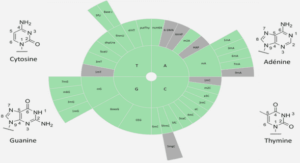SOCIAL ISSUES IN THOMAS HARDY’S THE WOODLANDERS (1887) AND TESS OF THE D’URBERVILLES (1891)
MAN AND THE COUNTRYSIDE
To begin with, Man can be defined as a person, regardless of sex or age. His ability to think makes him different from animals. The mind he gets allows him to turn his environment into a place that suits him well, thus he puts forward his interest since he is made of human features. Yet in the place where he is growing up, there are some forces in constant struggle against human actions and in most of Hardy‟s novels everything that concerns human environment is skilfully transcribed. According to Raymond Williams, “In English „country‟ is both a nation and a part of „land‟; „the country‟ can be the whole society or its rural area”2 . Human settlements have been a long history and this with a strict connexion with the land from which directly or indirectly we all get our living. Thus, what the human society has achieved in terms of extension had been deeply known. Among these achievements, one can list the city which the large towns, a distinctive form of civilisation. In the countryside, there is the idea of a natural way of life because of peace, virtue and innocence. Indeed, the country way of life has included the very different practices of hunters, farmers, factory farmers and pastoralists. Its organisation has followed a certain process from the tribe and the manor to the feudal estate and also from the small peasantry and tenant farmers to the rural commune, from the large farm and the plantation to the large capitalist enterprise and the state farm. In addition, the English experience is worth putting the focus, because the decisive transformations in the relations between country and city happened there very early and with certain thoroughness. The industrial revolution is mainly responsible for the transformation that occurred in the countryside. It has not only transformed the countryside but it was also based on a highly developed agrarian capitalism which occasioned an early disappearance of the traditional peasantry. In the imperialist phase, in Britain and in its colonies for instance, the nature of the rural economy was transformed early such as dependence on a domestic agriculture decreased to low proportions with a small number of economically active people engaged in farming. Furthermore, this happened in a society that had already become the first predominantly urban-dwelling people in the history of human settlements. 2 Williams, Raymond. The Country and the city. New York: Oxford University Press, 1973, p.1 ~ 6 ~ Generally speaking, the very idea of „development‟ in the world is linked to the English experience which is exceptionally important; and its intensity is still memorable. What‟s more, through these transforming experiences, English attitudes to the countryside and to ideas of rural life was so powerful that, even after the society being urbanized, its literature was still predominantly rural for a generation. Forms and experiences of the old period still persisted even in the twentieth century in an urban and industrial land. This shows that rural life is so significant that it cannot be forgotten so quickly, and England, as an example, was rural before placing itself among the most urbanized and industrialized nations in the world. The striking point of the countryside is the physical awareness of trees, birds, the moving shapes of land and on the whole the natural world. In addition, a working agriculture, in which much of the nature is being produced. Most of people are responsible for the transformations around them and maybe this is the reason why Raymond William states: Both kinds of hedgerow, there on its earthbank, here on the flat or with a lining ditch, together with the oaks and hollies or the elms and thorns that follow their lines, have been seen and planted and tended by men. At the end of the lane by the cottage where I was a child… The country life encompasses many meanings for instance in activities (there are farming, communal dancing, superstition, milking, trades, walking through the woods…) and feelings and relationship. George Sturt is among those who have written about rural England. In his book untitled Change in the Village, and published in 1911, he wrote of the rural England „that is dying out now‟. George surrounded this ending to two periods which are enclosure after 1861 and residential settlement after 1900. This period takes us into that of a famous rural writer‟s novels, that is to say Thomas Hardy‟s. Thus, Thomas Hardy‟s novels are written between 1871 and 1896 and tracing back rural England since the 1830s. It is in his novels that people noticed the great climacteric change in rural life such as the disturbance and destruction of the „timeless rhythm of agriculture and seasons‟ as one writer has called it. However the rural social cohesion is disturbed with the coming of some intruders that is to say people who have not grown up in the countryside or those who travelled far away and got queer behaviours and feelings quite different from the local inhabitants. Those intruders influenced very much the natives. It is at the time of industrial revolution that rural people experienced this change. For instance in Tess Alec looks things differently compare to other characters and in The Woodlanders, Dr Edred Fitzpiers and Mrs Charmond represent the intruders who change the social cohesion. It is worth reminding that before the industrial revolution rural people were described by their happiness, good social cohesion, communal life, humanitarian, besides there was natural balance.
The Aspects of Nature
The treatment of nature in Hardy‟s novels is skilfully done especially in the description of images and characters‟ relationship to nature. Indeed, some people are to a certain extent compared to nature, while at the same time natural forces are in opposition to them, thus, taking them to suffering. Furthermore, it is worth telling that nature holds a very important place in the writings of Hardy, and it has various characteristics. Darwin has influenced Thomas Hardy in his thought about nature, for instance, the fact of putting Man on an equal footing with lower species. Hardy interprets Natural Selection by Darwin as something beyond Man and that he cannot control. A lot of critics have insisted on the pessimism of Darwin and Hardy, for the latter sacrifices his heroes at the end of stories, he often makes them die, and the plot is always tragic or perverse. Nature has a plan which reacts against the feelings and human wills. In both novels, Hardy tries to show the confusion of limits between vegetal, animal and human world. On page one of The Woodlanders , nature is presented to us, with the opening scene which is on the open street. The narrator portrays a rambler on a coach road in the half of his journey, and surrounded everywhere by trees. These trees not only dominate the spot but also seem to have “human features”. They seem as though they were “human beings” who are tired and want to have a rest. The personification is conveyed through the phrases “stretching over the road…reclining on the insubstantial air…5 and in Tess of the d‟Urbervilles, the wood behind the “new” d‟Urbervilles at Trantridge is called “The Chase” which is an ancient forest. The familiarity between nature and people is so important that people name things around them. Additionally that spot is a landmark for generations of people who happen to walk through that wood, thus, there is a certain relationship between this place and some people. Perhaps, in bringing closer nature and people, Hardy seems to say they are both inseparable because, here, the spot represents a mark that reminds people about a particular moment. What‟s more the man who comes from the woods towards the highway feels more loneliness, just after having stepped out of the trees. The man is called Mr. Percomb who is a barber at the same time a hairdresser from Sherton Abbas. He is going to Little Hintock with a unique aim that is to cut off Marty South‟s hair for his business. Marty is one of the native of Little Hintock which is the setting of The Woodlanders. The only thing that she considers in life is her precious hair which is of a special beauty, as she says “But my hair is my own, and I‟m going to keep it” She is not described as a beautiful woman, yet her hair is a point of attraction of people. Its colour is brown if it is seen by fire light whereas in daylight and with a careful observation it gives its real shade that “was a rare and beautiful approximation to chestnut”7 . Firstly, Marty does not want to cut off her hair for the barber‟s business, but later on when she discovers that the one she loves has given his heart to someone else. While she is in a hopeless state, she makes a decision to cut her hair and lays it on the table. The narrator describes Marty‟s tresses telling that “they stretched like waving and ropy weeds over the washed white bed of a stream” . In describing them as he does, Hardy clearly shows that the tresses seem to be alive, in comparing them with plants in order to give importance to the tresses. He shows that even lifeless things may give messages in signs unknown or even known to some people. Nature and people are inseparable because in Hardy‟s writings both terms seem in harmony. For instance Marty South is one of few people who are not easy to separate from nature, because she is able to feel signs from trees, and even finds out a remedy to cure them from their “aches”. When both Giles and she are planting new seedling pine trees to change those harvested by their fellows, Hardy describes a scene deep in the forest with Marty helping Giles, suddenly the former tells Giles “how they sigh directly we put ‟em upright, though while they are lying down they don‟t sigh at all,”Marty South does not only interpret trees, she is also able to understand some signs of animals. When both Giles and she are under a tree one day, and it happens that three pheasants are making noise on a bough, she tells Giles what she understands about the birds‟ sign, thus, she let her assistant know about the coming of a threatening weather. In addition to Marty, there is another character close to nature, he is called Giles Winterborne. The latter has a mysterious gift hidden in his hands that makes trees grow easily as the narrator comments on it when he says He had a marvellous power of making trees grow. Although he would seem to shovel in the earth quite carelessly there was a sort of sympathy between himself and the fir, oak, or beech that he was operating on; so that the roots took hold of the soil in a few days. When, on the other hand, any of the journeymen planted, although they seemed to go through an identically similar process, one quarter of the trees would die away during the ensuing August.Perhaps it is Hardy‟s means to say that Giles shares a deep relationship with trees. His mate Marty South is the only character in Little Hintock to give an approximation of Giles‟s degree of connection with nature. Yet, what is worth making a point is that even though, physically Grace Melbury loves Giles Winterborne, but she cannot love him as the way Marty South does. Marty‟s love is based on her feeling of nature, because they both work side by side on farms, telling one another their natural heritage, which means to Marty that her love for Giles is unable to end, it is pure and part of her life. Thus, for Hardy, Marty represents the image of Giles in The Woodlanders, and with a good analysis, she is the right woman to whom Giles should be married. Hardy‟s fictive characters are not the only ones to have particular feelings to their fellow men.
The Impact of Industrial Revolution on people
The industrial revolution is a period of formidable technological and economic progress which started in the late 18th and early 19th centuries in England. It has brought changes in agriculture, manufacturing, transportation etc. These changes had effects on people social life. During the industrial revolution, agriculture held a major place on people activities. Then the development of the Victorian period together with economic changes led to the evolution of a class society in a current sense. In the social stratification only two classes existed, the first owned productive agricultural lands and machines and the second and last one works for the first class. However until then the inherited social position of the family was regarded as the main point for the position of the individual within the social hierarchy, and social levels were defined in terms of “degree”, “order”, and “rank”. Although it is worth knowing that during the industrial period the importance of the inherited social position of the family did not quite disappear in English society, but then the social position of the individual became increasingly characterised in terms of economic power and not family lineage. In the revolution, British class system was composed of a complicated structure which opposed the emerging newly rich to the old aristocracy of pre-industrial society, rural to urban, and many more. Thus, in the Victorian era, the idea about social class has changed. The change from agriculture to industry undermined rural economies. These different changes have an impact on people with the birth of new bahaviours such as self-interest, selfishness, etc. Besides, since industrial revolution gives opportunity for people to earn money, the aim of everyone is to manage to find as much money as possible. And this reinforces Merryn Williams‟ study about Wessex communities in the “Economic and Social relationships in the Wessex Novels” where she examines the nineteenth century Dorset development. She concludes telling that it is a developing capitalist society, in which it is possible for different families and people either to sink or to rise from their original status. Thus, the ancient hereditary aristocracy reinforced by the new gentry of nineteenth-century that is to say those who earned their success in trade, industrial activities, professional jobs became the middle class. Due to changes in the social life, traditional purposes of marriage will change as well. Besides, most people and women in particular do not marry for love but to have a higher socio-economic situation. In Tess of the d‟Urbervilles when Tess‟s parents want her to marry Alec, they don‟t choose any kind of husband but the one who could fulfill their needs that is to say a wealthy man who could transfer his possessions to them. At that time the hope of young girls was marriage in general. And those in middle classes, it is a good deal to secure their possessions. In these cases parents were involved in their children‟s marriages. In The Woodlanders George Melbury wants her daughter Grace to marry Dr Fitzpiers, for the latter is from a noble class. Added to that, he is well educated, and has a good situation. In Tess of the d‟Urbervilles Mrs Clare wants her son to marry a suitable woman and this will avoid money division. In showing several passages related to the impact of industrial revolution, Hardy seems to say that this period brings so damages and sorrow that it will be difficult to “repair”. Yet, the friendship that existed between Giles and Mr Melbury before his daughter‟s return from abroad is fine. Additionally Giles is the only close fellow to Mr Melbury and he is used to help him in the busiest wood-cutting season and transportations of spars from the wood to his spar-house as well as delivering them to the city. Hardy portrays Giles Winterborne as an honest and a hard working man and is able to sacrifice his life to the service of somebody. What‟s more in various ways a connection between Giles and Mr Melbury exists. For instance Giles‟ aunt marries Mr Melbury‟s brother and they both emigrate later on. Despite all this relationship, Mr Melbury does not secure Giles financially. Then Giles remains poor till the end of his days as he lives alone and far away from the natives. Another act of self-interest happens when Mrs Charmond the Little Hintock landowner is in need of Marty South‟s hair; she becomes kind and gentle to her. Mrs Charmond‟s coachman tells Marty that his boss behaviour is a new one as he says “I have never known her do it before; for as a rule she takes no interest in the village folk at all” In the pre-industrial society the “highest” class known as the aristocracy including the Church had wealth and great power in the social life. Besides this is a class that constituted about two percent of the population and owned most of the lands. Besides in that period the position of an individual in the social hierarchy is determined by the possession of land he or she could get. The Durbeyfield in Tess of the d‟Urbervilles were a powerful emblem of the way in which class is no longer considered in Victorian era as it should have been in the Middle Ages by blood only and not by possessions one can have. Indeed the nouveau rich belongs to this class that comes at the top of the ladder during the process of transformation of the English society next to the aristocracy. It is related to those who get their fortune in their generation. They could fulfill their dreams, now that noble blood no longer exists in the industrialization. The d‟Urbervilles and especially Alec is an illustration of the newly rich. Social mobility can roughly be defined as the development that concerned the social structure. Some writers lay emphasis on Henchard in The Mayor of the Casterbridge in example of social mobility. For instance Thomas Hardy: the „Dreamcountry‟ of his fiction, the author Anne Alexander in her chapter untitled “Man and Society”, she portrays the way social change appears to the individuals. Among Hardy‟s novels the character of Henchard is perhaps one of the most illustrative examples of Hardy, Thomas. The woodlanders. upward and downward social mobility. He begins from an unemployed wanderer to the position of mayor of Casterbridge which reveals the Victorian dreams of rising from the lower social scale to the top of the social hierarchy. Yet some writers cannot understand such a progress in Dorset in the Victorian period. Among those writers one can list Snell when he refers to it as “an incredible feat of upward social mobility, surely far beyond the reach of nineteenth-century rural labourer in Dorset”40. It is the same as the process of migration that set in gradually, it influences society that develops step by step. Right at the beginning, social changes affect only a few characters. As time elapses, social changes have an impact on an increasing number of characters in later novels. Anne Alexander finally points out the existence of two societies: the old rural Wessex communities and the modern urban society. What‟s more Wessex as she portrays it, is still marked by the general belief of rural communities in superstition. Alexander thinks that, for many characters faith means nothing to them. Thus, what makes Wessex community different from urban society undoubtedly comes from different perception of religion. Moreover, during the industrial revolution, doors are widely open to any social class to get rich. While some reached their aims others were left behind that is to say those who would live in poverty. The poor-stricken families will constitute what one would call the lower or working classes. As a result they would live in a critical position and worked hard for a poor pay. For instance Tess family lives in extreme poverty, and they stay the same even after her several returns back to her parents‟ cottage in Marlott. Tess‟s brothers and sisters are not lucky to a good education, healthcare and social status as well. If their present position gets worse, it is in one part due to the lack of education. Indeed, the lower class children hardly continued their studies or left school to support their parents whereas the middle class‟s children carried on their studies, for the parents can financially support them. Thus those middle class‟s children are not under pressure to help their parents as the lower class would do. Education allows an individual to develop his skills such as thinking or knowing lots of thing in life. Thanks to education, Tess is able to speak good English in comparison to her parents. While she is studying, Tess could not finish her school career simply because she leaves school to earn money. This is why all the time the narrator describes her working in farms, gardens etc. Most of children from lower class performed the tasks of their parents. When the protagonist goes to deliver the beehives to Casterbridge with her brother, they undertake the responsibility of their father John who is described as a lazy man. What Tess has done for her parents happens in The Woodlanders. For, Marty South undertakes her father‟s task in making spars while her father John is sick. During the industrial revolution lots of issues arose due to the urbanization. Factories were set up creating job‟s opportunities in cities. Countryside people migrated from their lands to the cities with a great hope of finding jobs. Unfortunately, once there was a total disillusionment. This situation happened to Tess causing her rape by Alec in the town of Trantridge. Similarly Grace regrets for having gone abroad because this has caused her unhappiness. Religion was so much questioned during the industrialization. Science sustains that the individual is able to do anything, then forgets the power of God. Science puts reason before everything. As a result people thought religious beliefs were irrational and they put them aside. For instance the son of reverend Clare refuses to continue his studies so as not to be a member of the Church. He is a victim of the conflict between science and religion due to his reading of philosophical and science books. He does not want to pursue his studies on religion but prefers to a farmer because farming does not trapped in one way of thinking. Farming allows him different approach in life and not a fix way of seeing things. However he goes to Talbothays where he learns farmer‟s tricks and human nature. Angel in Tess is similar to Dr Fitzpiers in The Woodlanders in the sense that they both use their minds before everything. In a nutshell during the industrial revolution, the individual starts thinking that religion prevents him from enjoying his freedom, and that he is able to achieve everything.
INTRODUCTION |





